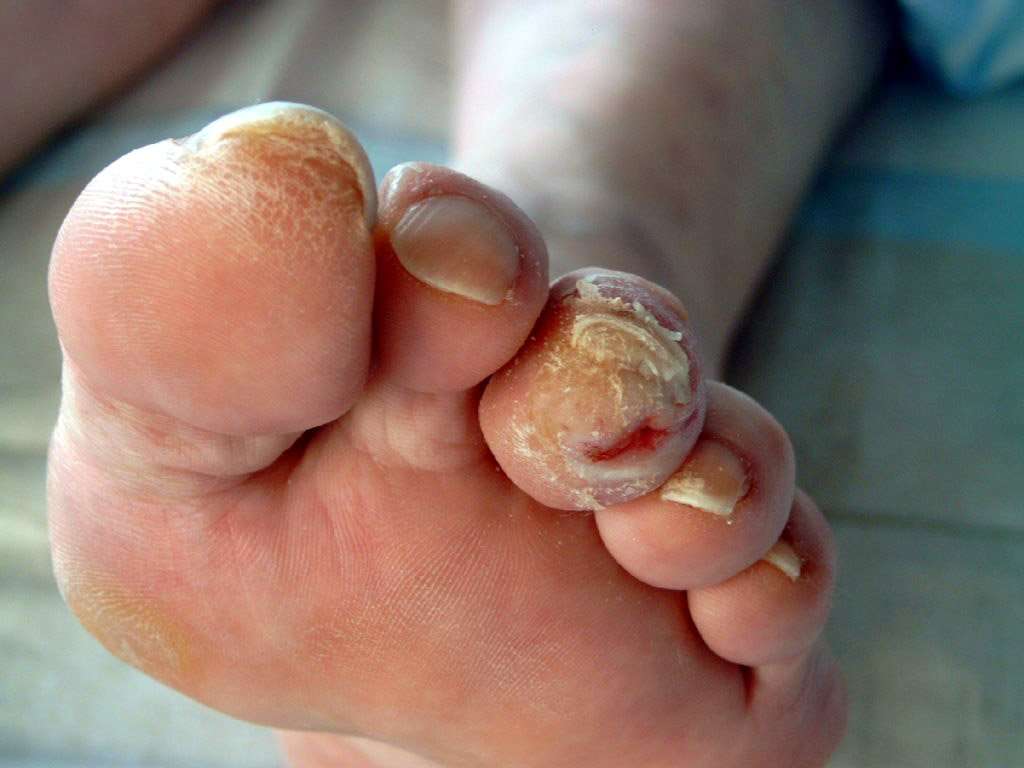
To lower the risk of developing foot problems, persons living with diabetes should go for regular foot checks, a medical specialist in endocrinology, Dr. Afoke Isiavwe, has said.
Dr. Isiavwe made the call in a statement she released in commemoration of the 2022 World Diabetes Day.
She noted in the statement that regular foot checks by persons living with diabetes will help reduce the increasing number of diabetes foot cases in the country.
According to the statement made available to PUNCH HealthWise, the health expert noted that diabetes foot is a major complication of diabetes mellitus in Nigeria and often leads to amputation when poorly managed.
The endocrinologist stated that persons with uncontrolled diabetes would develop a wide range of complications linked with the disease, some of which could lead to lengthy hospital stays, blindness, foot amputation, or death.
Isiavwe, who is the Medical Director of Rainbow Specialist Medical Centre, Lagos, stressed that good foot care is important for persons living with diabetes.
World Diabetes Day is marked worldwide by the International Diabetes Federation and the World Health Organisation on November 14, every year.
The physician said the theme for this year’s event, “Education to protect tomorrow” provides an opportunity for people to know their diabetes status by getting screened.
Isiavwe said Rainbow Hospital will be offering free diabetes screening to patients all through November as part of activities to mark the event.
“We are therefore encouraging everyone including people living with diabetes and their family members to seize the opportunity of this exercise to know their status and how to care for people living with the condition.
“It’s also an opportunity for people to know their status, especially in view of findings that one out of every two persons living with diabetes do not know they have it. Yet, early detection of diabetes remains crucial in the prevention of deadly complications.
“Persons with uncontrolled diabetes will develop a wide range of complications linked with the disease, some of which could lead to lengthy hospital stays, blindness, foot amputation or death,” she said in the statement.
The statement further said, “As we mark this year’s World Diabetes Day, we want persons living with diabetes to know that it can be controlled and should not be allowed to result in the numerous complications associated with it.
“The exercise will also serve as an avenue for them to have their feet checked to prevent the growing problem of diabetes foot. Not only that, it will provide access to basic information on how to live with the condition and stay healthy all year round.”
In a 2019 article published in the Journal of the American Medical Association titled, ‘Why are people with diabetes at risk of ulcers?’, the authors said foot and lower leg ulcers were one of the many problems caused by poorly controlled diabetes.
According to them, ulcers that do not heal can lead to amputations of toes, parts of the foot, or the lower leg.
The authors said, “Diabetes damages blood vessels throughout the body. Tiny blood vessels that supply the nerves in the legs may be affected, resulting in burning pain or numbness in the feet (peripheral neuropathy) and reduced pain sensation.
“Calluses, blisters, cuts, burns, and ingrown toenails can all lead to diabetic foot ulcers. A patient may not be aware of these minor injuries due to peripheral neuropathy, so ulcers may develop and enlarge before they are noticed.
“Larger blood vessels in the legs may also be affected by diabetes, resulting in poor circulation (peripheral artery disease).
“Ulcers may heal slowly due to peripheral artery disease. High blood glucose levels also delay healing. Daily foot inspection is an important part of diabetes management and can help prevent foot ulcers.”
Copyright PUNCH










